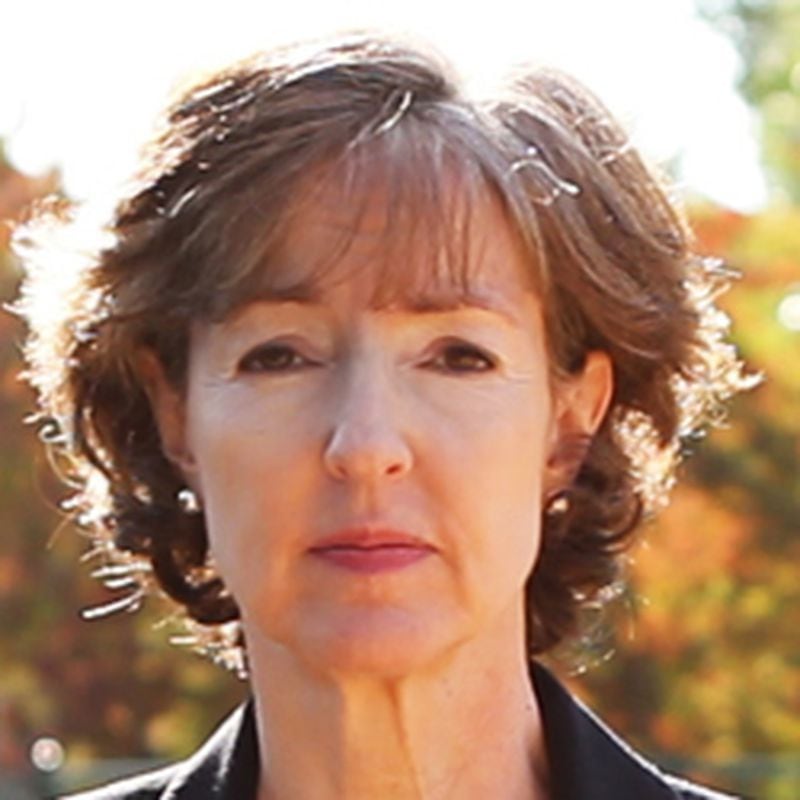Jane Robbins of Atlanta is an attorney and senior fellow at the American Principles Project, a conservative think tank. In this piece, she criticizes the transgender student policy followed by the City of Decatur Schools.
The policy is being questioned by some parents, but the school board indicated at a packed public meeting Tuesday it would likely stand by it. (Robbins attended the meeting, which included three hours of public comment on the issue.) The majority of Decatur parents and residents at the meeting applauded the policy, which allows students to use bathrooms and locker rooms that match their gender identity.
Board member Lewis Jones said the board owes it to the community to listen and "see if there are some concerns that can be addressed through appropriate measures." But he expects the board will adopt a policy that is "largely supportive or entirely supportive of the current practices that have developed through the instructions to staff."
Vernadette Broyles, a Norcross attorney who represents several parents who take issue with the superintendent's instructions, said she views the directive as illegal. She said they violate the "constitutionally protected right to bodily privacy of the students" and threaten parents' rights "to direct the training and the exposure of their children's bodies to members of the opposite sex," among other legal problems she's raised with the rules.
With that background, here is Robbins' guest column. (You can read another view on this issue here.)
By Jane Robbins
The world of gender dysphoria has come to City Schools of Decatur, and things look bleak for reality-based Decatur families. This was apparent from the largely respectful but sometimes emotional discussion at a CSD Board of Education meeting Tuesday night.
At issue was a set of radical guidelines implemented by Superintendent David Dude specifying required accommodations for CSD students suffering from gender dysphoria (transgenderism).
Decatur parents discovered this plan in February when a July 2016 staff memo from Dude appeared on social media. The memo contained guidelines – never approved by the board or submitted to parents – requiring that staff open up all restrooms, locker rooms, sports teams, and overnight accommodations to both sexes. Although CSD has enforced general non-discrimination language for 10 years, Dude’s mandate is something new and troubling.
These guidelines are even more extreme than the Obama administration "guidance" of 2016, which at least acknowledged problems with male athletes' competing against female athletes. Dude had no such qualms.
Horrified CSD parents could think of no greater abdication of the school's responsibility to protect their children's privacy, safety, and dignity than allowing members of one sex to enter the most private spaces of the other. And they objected to the wholesale inversion of federal protections (Title IX) for girls' athletic opportunities. (See here and here for how girls are disadvantaged by being pitted against male athletes.)
So these parents demanded the board review the policy and consider the public input that Dude had excluded. Thus the discussion on Tuesday.
Credit: Maureen Downey
Credit: Maureen Downey
The board signaled its proclivities at a pre-meeting work session. One "expert" invited to discuss gender dysphoria was a minister who "transitioned" 20 years ago, and who offered historical information but little scientific data. The other was a Georgia State University professor who admitted that transgender individuals make up less than .4 percent of the population. The professor identified himself as "cisgender" (a made-up word that refers to accepting one's biological sex) and declared that modifying the transgender policy will cause kids to kill themselves. For what it's worth, he also revealed that he trained at the Kinsey Institute, which was founded by a sexologist who can most charitably be described as a moral monster.
With the “scientific” information coming solely from these two, the deck would appear to be stacked.
Most statements made at the subsequent public meeting supported the transgender policy, not surprising for Decatur, long a magnet for hyper-diversity and left-wing activism. Parents and current or former CSD students spoke about struggling with gender dysphoria. Many commenters on the other side acknowledged this difficulty but urged a compassionate accommodation that protects all students.
In this environment, it’s notable that anyone dared oppose the policy (15 speakers did, and one parent confided after the meeting many others had concerns but were simply afraid to speak out). They related their children’s discomfort at having to change clothes or engage in other private functions alongside a member of the opposite sex. They objected to the non-transparent creation of the policy, and to the schools’ usurping their parental rights to address these issues on their own timetable and transmit their own values to their children.
Several African-American speakers took exception to Dude's suggestion that restricting private spaces to members of a single sex (permitted by Title IX regulations) is the same as Jim Crow racial segregation. They recognized the difference between race and sex, as did everyone in the world until about day before yesterday.
Vernadette Broyles, an attorney representing some of the parents, warned the new policy violates students’ right to privacy, parental rights, first amendment rights, and Title IX. Board members seem unconcerned the increased legal liability.
The board didn’t take a vote and pledged instead to hold input sessions so that all stakeholders can be heard. Most members indicated, however, that they support the policy and doubt it will change. There was little acknowledgement that non-dysphoric students could have legitimate concerns; the problems of the dysphoric were clearly considered more important.
An indicator of whether the board members have open minds will be their response to an offer from a pediatric endocrinologist who has treated gender-dysphoric patients for decades. He warned that despite the propaganda, there is no medical consensus that the policy in question is the best way to handle the condition. He urged the board to take a thoughtful, balanced approach, and offered his services to help.
If the board invites him to return and provide input, there’s hope. If not, the fix is in. Parents in other districts should brace themselves – their kids will be next.
About the Author








